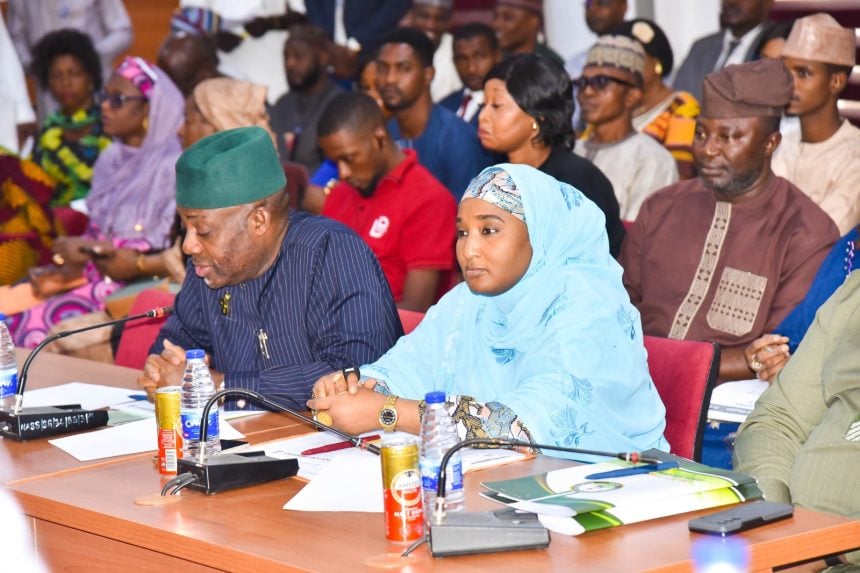In a major development that has sent waves across the Nigerian education sector, the Academic Staff Union of Universities (ASUU) has officially announced the commencement of a two-week warning strike starting tomorrow. This decision follows the expiration of the two-week ultimatum the union had earlier issued to the Federal Government of Nigeria to meet its longstanding demands.
Background: Why ASUU Is Embarking on Another Strike
According to the statement from ASUU’s national leadership, the union decided to embark on the strike after what it described as the Federal Government’s consistent neglect and failure to honor previous agreements reached with the union over the years.
ASUU lamented that despite multiple meetings and promises made by government representatives, none of their key demands—including improved welfare for lecturers, revitalization funds for public universities, and the renegotiation of the 2009 ASUU-FG Agreement—have been fulfilled.
The union also raised concerns about the poor condition of learning and research facilities across Nigerian universities, the delayed release of Earned Academic Allowances (EAA), and the non-payment of withheld salaries from previous strikes.
“We have been patient enough. The government has failed to act responsibly within the given ultimatum. This warning strike is to remind them that our patience has limits,” an ASUU representative stated.
Details of the Two-Week Warning Strike
The two-week strike, which begins tomorrow, will affect all federal and state universities under ASUU’s jurisdiction nationwide. During this period, all academic activities—including lectures, tests, and project supervision—will be suspended.
While the strike is described as “warning” in nature, many fear it could extend if the Federal Government does not respond promptly to ASUU’s demands.
The union’s national executive council (NEC) reportedly held a crucial meeting over the weekend where members unanimously agreed that the two-week industrial action was necessary to press home their demands and to draw national attention to the deteriorating state of public universities in Nigeria.
ASUU’s Major Demands
Below are some of the key issues ASUU wants the Federal Government to urgently address:
| ASUU’s Demands | Details |
|---|---|
| Renegotiation of 2009 Agreement | Review of outdated terms covering funding, staff welfare, and university autonomy. |
| Payment of Earned Academic Allowances (EAA) | Settlement of all outstanding allowances owed to university lecturers. |
| Revitalization Funds | Increased financial support for the development of public universities. |
| Payment of Withheld Salaries | Immediate payment of salaries withheld during previous strike actions. |
| Replacement of IPPIS with UTAS | Adoption of the University Transparency and Accountability Solution (UTAS) as a more suitable payroll system. |
ASUU insists that the University Transparency and Accountability Solution (UTAS), developed by its members, is a better and more transparent payment platform than the Integrated Payroll and Personnel Information System (IPPIS) currently imposed by the government.
Students React: Mixed Feelings and Frustration
The announcement has triggered a wave of mixed reactions among Nigerian students, many of whom expressed frustration over the constant disruption of the academic calendar.
Some students, particularly final-year undergraduates, have described the situation as heartbreaking, noting that frequent strikes not only delay graduation but also affect job opportunities, NYSC mobilization, and overall academic morale.
“We’ve suffered enough. Every time we’re about to make progress, ASUU goes on strike again. The government should just fix this once and for all,” a student from FUTMINNA lamented.
Others, however, expressed solidarity with ASUU, stating that the lecturers deserve better treatment and that the government must take education seriously if Nigeria is to develop.
The Federal Government’s Position
As of the time of this report, the Federal Government has not issued an official statement responding to ASUU’s new strike declaration. However, sources within the Ministry of Education revealed that discussions may soon resume to avert a prolonged shutdown of universities.
Government officials have repeatedly argued that budget constraints and economic challenges have slowed down the implementation of previous agreements. Still, many education stakeholders believe that the issue is more about lack of political will than financial incapacity.
Possible Implications of the Strike
If the two-week warning strike is not resolved quickly, it could once again paralyze academic activities across Nigeria’s universities, delay ongoing examinations, and disrupt university calendars that were only recently stabilized after previous strikes.
Parents, students, and stakeholders are now urging both ASUU and the Federal Government to prioritize dialogue and reach a lasting solution rather than temporary compromises.
Conclusion
ASUU’s decision to embark on a two-week warning strike marks yet another chapter in Nigeria’s long history of industrial disputes in the education sector. While the union insists that its actions are in the best interest of the system, many Nigerians are calling for urgent reforms to prevent these recurring disruptions.
As the strike begins tomorrow, all eyes are now on the Federal Government’s response. Whether this warning strike will end in renewed negotiations or escalate into a prolonged shutdown remains to be seen.



